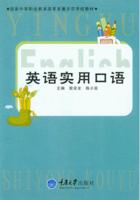亲爱的同学们,人们做任何事情都有一定的目的。俗话说理解万岁,为了让他人理解我们的意图,我们无时无刻不在阐述自己的目的所在。生活中目的状语从句无处不在,你会正确运用吗?今天就让我们走进目的状语从句,向目的进军。OK, let"s go!
19.1目的状语从句的基本用法
目的状语从句是用以补充说明主句中谓语动词发生的目的的,不能单独成句。
引导目的状语从句常用的连词有so that(以便),in order that(为了,以便),that(以便),lest(免得,唯恐),for fear that(生怕,以免),in case(以免)。目的状语从句的谓语常含有may, might, can, could, should, would 等情态动词。
19.2so that, in order that 等引导的目的状语从句
so that, in order that 常与may, might, can, could, should, would 等情态动词连用,引导目的状语从句,多放在主句之后,但如果为了强调,也可以放在主句之前。例如:
I must speak louder so that/in order that I can be heard by all.
我必须大声说话,以便大家都能听到我说话。
Write clearly (so) that everyone can read it.
写清楚点儿,以便大家都能看。
She takes notes carefully in class so that/in order that she may use them when she reviews her lessons after class.
她在课堂上认真记笔记,以便她能在课后很好地复习功课。
My father works hard in order that he may support us.
我父亲为了养家辛苦地工作。
He raised his hand in order that the taxi may stop.
他举起手以便使出租车停下来。
Dialogue & Analysis(此处有视频学习资料)
A: What are we going to do next?
B: Shopping.
A: Shopping? It seems you and I together can do nothing but shopping.(并列连词and 是把所连接的部分通过累加的方式连接在一起的连词。)
B: Neither you nor I like going shopping.(并列连词neither … nor的作用是将若干语法相同的部分连接在一起,在其中选择一个。)
A: But why must you do things which you don"t like?(从属连词which 引导定语从句。)
B: All my skirts are out of fashion.Therefore, I should go and buy a new one.Come on.
(连词therefore 连接前后两个句子,表示因果、推理的意义;and 是并列连词。)
A: I wonder whether (if) this fits me.(从属连词whether 引导的名词从句做动词的宾语时,在不会引起歧义时可用if 代替。)
B: Oh, that one which has red dots on it looks better.What do you think?
A: I really don"t know what you like.Why don"t you go inside and have a try?(从属连词what 引导宾语从句,相当于that which。)
A: Hi, can I talk to you for a few minutes?
C: Why?
A: My girlfriend will leave here if she finds me talking to a girl.(从属连词if 引导条件状语从句,类似的用法还有unless, only if 等。)
C: Why do you want her to leave?
A: I want to leave here so that I don"t have to pay for the skirt(.从属连词 so that 引导目的状语从句,类似的用法还有in order that, in case 等。)
B: OK, there"s nothing good here.Let"s go.
19.3lest, for fear that, in case 引导的目的状语从句lest(免得,唯恐),for fear that(生怕,以免),in case(以免)引导的目的状语从句,一般采用虚拟语气结构,其谓语部分用“should+动词原形”,should 可以省略。这三个短语或词都相当于“in order that not”或“so that not”。例如:
Tom is telling her that lest she (should) make a mistake.
汤姆告诉她这一点,以免她搞错。
The teacher emphasized it again and again, lest we (should) forget.
老师反复强调这一点,免得我们忘了。
He pushed open the door gently and went out of the room quietly for fear that he (should)awake his wife.
为了不惊醒妻子,他轻轻地推开房门,悄悄地走了出去。
I hid the money for fear that he should see it.
我把钱藏了起来,以防被他看见。
Take your umbrella in case it rains.
带上雨伞,以防下雨。
Take a taxi in case you are late for the wonderful film.
坐出租车去,以免去看这部精彩的电影迟到了。
Task 1
挑错。
1.Mary sits in the front row in case she can hear better.
_____________________________________________________________________________
2.He ran away quickly so that he could be seen.
_____________________________________________________________________________
3.His parents sent him abroad for fear that he could learn English well.
_____________________________________________________________________________
4.Bring a thick coat with you so that it should be very cold.
_____________________________________________________________________________
5.The city government is going to build another park in case the citizens can better entertain themselves.
_____________________________________________________________________________
19.4学习目的状语从句应注意的事项
(1)目的状语从句中常含有can, could, may, might, should 等情态动词。例如:
I went there early so that I could get a good seat.
我去得很早,目的是坐到好的座位。
(2)引导目的状语从句的 so that有时可以省略so 或 that,即单独用 so或that来引导目的状语从句。例如:
The building will be repainted so it can be more beautiful.
要重新粉刷那座大楼,以使它更加漂亮。
Read more carefully, so any spelling mistake will be found.
要仔细阅读,以便检查出所有拼写错误。
Please speak more slowly that we can better understand you.
请说慢点儿,以使我们更好地理解你说的话。
(3)in order that 与in order to 的意思相同,只不过表达方式各异。例如:
in order that+从句(目的状语从句)
in order to+动词原形(目的状语)
We work hard in order that we can learn more knowledge.
We work hard in order to learn more knowledge.
我们努力学习,以便学会更多的知识。
(4)lest(唯恐,以免,为不使)用在fear, be afraid, be anxious 等之后。例如:
I am afraid lest I should fail my final exam.
我怕我期末考试会挂科。
They are anxious lest they"ve been cheated into buying the fake diamond ring.
他们怕被骗买了假钻戒。
19.5so that 引导目的状语从句与引导结果状语从句的辨别so that 引导的目的状语从句通常放在主句之前,也可放在主句之后,而so that 引导的结果状语从句只能放在主句之后。
(1)so that 引导状语从句时与情态动词can, could, may, might 等连用;当从句里没有情态动词,且谓语动词是一般现在时(过去时)、现在完成时等时态时,是结果状语从句。例如:
I sent him a thick coat so that he can survive the cold winter.
我寄给他一件厚外套,以使他度过严冬。(目的状语从句)
My students have been working very hard, so that they all have achieved good performance.
我的学生学习很努力,所以他们都取得了优良的成绩。(结果状语从句)
I have consulted him about the matter, so that I know what to do.
我就这件事情请教过他,所以我知道怎么做。(结果状语从句)
(2)当表达的含义是“为了”、“以便”时,为目的状语从句;当表达的含义是“以至于”、“因此”时,为结果状语从句。例如:
Jenny does a part-time job at weekends so that she can be independent financially.
詹妮周末做兼职工作,以便能够在经济上独立。(目的状语从句)
Jenny does a part-time job at weekends, so that she is independent financially.
詹妮周末做兼职工作,因此能够在经济上独立。(结果状语从句)
It was terribly hot yesterday morning, so that we had to stay at home.
昨天上午非常热,因此我们只好待在家里。(结果状语从句)
(3)so that 引导目的状语从句无需用逗号跟主语隔开,反之是结果状语从句。例如:
I do much English reading and listening so that I can learn English well.
我做大量阅读和听力,以便学好英语。
I do much English reading and listening, so that I"m good at English.
我做了大量阅读和听力,所以很擅长英语。
(4)当从句之前的so that 可用in order that 代替时,是目的状语从句;反之,是结果状语从句。例如:
I followed immediately at her heels so that I could tell her the news in time.
(=I followed immediately at her heels in order that I could tell her the news in time.)
我紧随其后,以便能及时告诉她那个消息。(目的状语从句)
I followed immediately at her heels, so that I told her the news in time.
我紧随其后,所以及时告诉了她那个消息。(结果状语从句)
Task 2
用so (that) 合并下列句子。
1.Yesterday morning I got up at five.I wanted to run in the park.
2.I turned on the TV.I wanted to see the film I like best.
3.My grandfather learned to drive a car at a very old age.He wanted to drive by himself when he traveled.
4.Be sure to put the meat in the oven at 11.You want to be sure that it will be ready to eat by 12.
5.Put the drink in the refrigerator.We want to make sure it won"t spoil.
6.Last month Mary hired a baby-sitter.She wanted to be able to go out with some friends.
7.Next month Mary will hire a baby-sitter.She wants to be able to go out with some friends.
8.I switched off my telephone.I didn"t want to be interrupted while I was working.
9.I"ll switch off my cell phone.I don"t want to be interrupted while I"m working.
选择题。
1.I"d like to arrive an hour early I can have time to chat with her.
A.although
B.even
C.in case
D.so that
2.The birds need special care they can live through winter.
A.why
B.so that
C.even if
D.how
3.Leave your key with a neighbor you lock yourself out one day.
A.ever since
B.even though
C.as soon as
D.in case
4.We"ll spend our vacation in the small village we can enjoy the beautiful scene there.
A.in case
B.so that
C.in any case
D.although
5.They left early they were late for the meeting.
A.in case
B.so that
C.in any case
D.although
6.Please speak loudly all of us can hear you.
A.so that
B.if
C.when
D.although
7.She was tired she could not walk any more.
A.very;that
B.such;that
C.so;that
D.so;as
8.I went to school in a hurry I wouldn"t be late for class.
A.since
B.so that
C.as if
D.unless
9.The child was early in the morning.
A.enough excited to get up
B.too excited to get up
C.so excited that he got up
D.very excited, he got up
10.It was that she couldn"t finish it by herself.
A.so difficult a work
B.such a difficult work
C.so difficult work
D.such difficult work
11.I arrived there late I didn"t meet him.
A.too;to
B.such;that
C.so;that
D.so;as
12.It is hot in the room we have to use the fans.
A.such;that
B.so;that
C.as;as
D.such;as
13.Lift it up I may see it.
A.though
B.so that
C.as
D.than
14.I think we should go by plane we can get there earlier.
A.as soon as
B.where
C.in order that
D.as
15.You must improve your study method you may make progress in your studies.
A.so as to
B.in order to
C.so
D.in order that
16.I arranged my family for insurance we needed medical treatment.
A.even though
B.though
C.so that
D.in case
17.I didn"t have a rest last weekend I could finish the task on time.
A.in case
B.so that
C.since
D.whenever
18.I listened carefully I might figure out what she meant.
A.in case
B.providing
C.so that
D.such that
19.He didn"t want his daughter to go abroad she couldn"t take care of herself.
A.so that
B.in case
C.for fear that
D.in order that
20.Do come back earlier and go to bed before ten you"ll get up late.
A.so that
B.in order that
C.in case
D.although
Fun Time
Why Doctors Wear Masks
Once a small child asked his father, “Father, why do doctors always have to wear masks inthe operating room?” And the father replied, “In case something goes wrong, no one will know who they are.”















